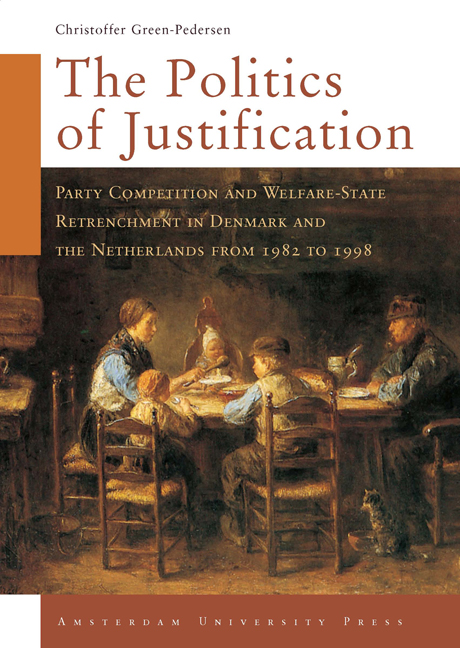 The Politics of Justification
The Politics of Justification Published online by Cambridge University Press: 15 January 2021
This chapter starts with a brief summary of the main findings of the study. The rest of the chapter aims at discussing a number of implications of these findings at two levels. First, the implications for the scholarly debate about welfare-state retrenchment will be discussed. This includes a discussion of the prospects of generalising the insights of this study beyond the cases studied here. Second, the chapter will address the broader question about the political background for the economic ‘miracles’ in the two countries and the implications that this has for the debate about a country's ability to adjust their models of welfare capitalism to a changed economic environment, and the understanding of the dilemmas of European Social Democracy.
The main findings
The main finding of this study is evidently the importance of party politics for the development of modern welfare states. This study claims that a focus on Dutch and Danish party competition is a must if one wants to know why the Netherlands has generally carried through a larger scale of retrenchment than Denmark. The same goes for the variation over time in the two countries. One must consider how the Dutch pivot system of party competition produced a party consensus around retrenchment. This consensus allowed various Dutch coalition governments to justify retrenchment measures in the eyes of the electorate. One must also consider how, except for the years of economic crisis, the Danish bloc-system of party competition implied a political stalemate in relation to retrenchment during the right-wing bloc rule. However, once the Social Democrats regained power, a party consensus around retrenchment emerged.
If an understanding of the reasons for differences in the extent of retrenchment of the various social-security schemes is desired, the schemes’ connection to the labour market must be considered. It affects governments’ capabilities of justifying retrenchment measures in the eyes of the electorate as well as shapes government incentives for retrenchment. This factor explains why the old-age pension schemes in both countries fared the best in this period, and why the Danish disability-pension scheme fared better than both unemployment benefits and early-retirement benefits.
To save this book to your Kindle, first ensure [email protected] is added to your Approved Personal Document E-mail List under your Personal Document Settings on the Manage Your Content and Devices page of your Amazon account. Then enter the ‘name’ part of your Kindle email address below. Find out more about saving to your Kindle.
Note you can select to save to either the @free.kindle.com or @kindle.com variations. ‘@free.kindle.com’ emails are free but can only be saved to your device when it is connected to wi-fi. ‘@kindle.com’ emails can be delivered even when you are not connected to wi-fi, but note that service fees apply.
Find out more about the Kindle Personal Document Service.
To save content items to your account, please confirm that you agree to abide by our usage policies. If this is the first time you use this feature, you will be asked to authorise Cambridge Core to connect with your account. Find out more about saving content to Dropbox.
To save content items to your account, please confirm that you agree to abide by our usage policies. If this is the first time you use this feature, you will be asked to authorise Cambridge Core to connect with your account. Find out more about saving content to Google Drive.